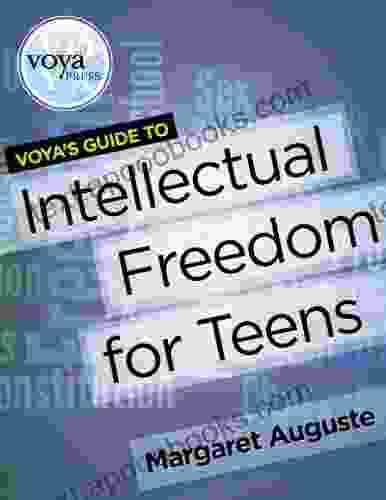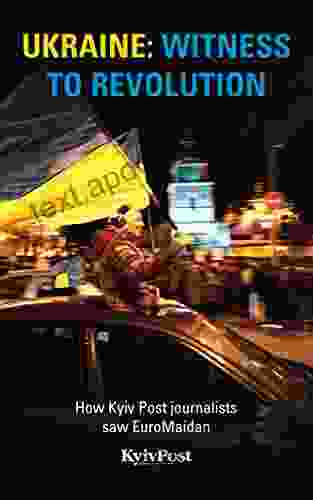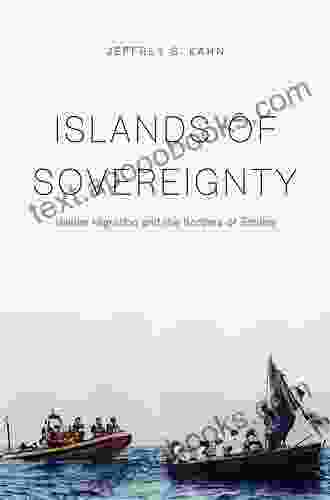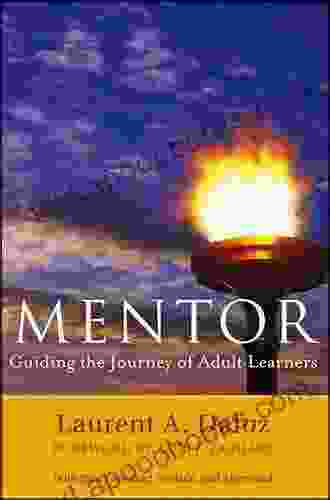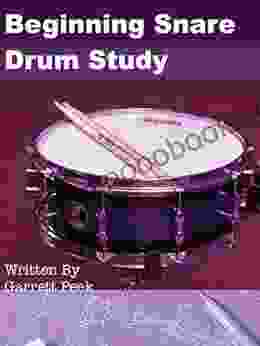Voya Guide to Intellectual Freedom for Teens: Igniting the Flame of Inquiry and Empowerment

5 out of 5
| Language | : | English |
| File size | : | 2746 KB |
| Text-to-Speech | : | Enabled |
| Screen Reader | : | Supported |
| Enhanced typesetting | : | Enabled |
| Word Wise | : | Enabled |
| Print length | : | 208 pages |
: The Importance of Intellectual Freedom for Teens
In an era of rapidly evolving technology and access to vast amounts of information, intellectual freedom has become paramount for the development of well-rounded and informed individuals. For teenagers, who are navigating the complex landscapes of adolescence and forming their own beliefs and opinions, access to diverse perspectives and the freedom to question and explore ideas without fear of censorship is essential for their intellectual, emotional, and social growth.
The Voya Guide to Intellectual Freedom for Teens provides a comprehensive framework for understanding and advocating for intellectual freedom in the lives of young people. Through engaging and thought-provoking content, this invaluable resource empowers teens to:
- Understand the concept of intellectual freedom and its importance for a democratic society.
- Identify and challenge censorship in its various forms.
- Develop critical thinking skills to evaluate information and make informed decisions.
- Become responsible citizens who respect the rights of others and promote intellectual freedom for all.
Chapter 1: Understanding Intellectual Freedom
The first chapter of the Voya Guide to Intellectual Freedom for Teens delves into the fundamental concepts of intellectual freedom, exploring its historical roots and its relevance in today's digital world. Teens will learn about the principles of free speech, the right to access information, and the importance of challenging censorship.
Key concepts covered in Chapter 1 include:
- The First Amendment of the U.S. Constitution and its protection of free speech.
- The role of intellectual freedom in promoting democratic values and fostering a culture of open dialogue.
- The challenges to intellectual freedom posed by censorship, both overt and subtle.
Chapter 2: Recognizing and Challenging Censorship
Chapter 2 empowers teens to identify and challenge censorship in various forms, including book banning, internet filtering, and suppression of dissenting voices. Through real-world examples and case studies, the guide provides practical strategies for advocating for intellectual freedom and defending the right to access information.
Key concepts covered in Chapter 2 include:
- Different types of censorship and their impact on individuals and society.
- The role of young people in combating censorship and promoting intellectual freedom.
- Strategies for challenging censorship, such as writing letters to elected officials, organizing protests, and supporting organizations that defend intellectual freedom.
Chapter 3: Developing Critical Thinking Skills
In Chapter 3, the Voya Guide to Intellectual Freedom for Teens emphasizes the significance of critical thinking skills in the digital age. Teens will learn how to analyze information, evaluate sources, and form their own informed opinions based on evidence and reason.
Key concepts covered in Chapter 3 include:
- The importance of critical thinking for making responsible decisions and understanding the world around us.
- Techniques for evaluating information, such as considering source credibility, bias, and evidence.
- Strategies for forming and defending one's own opinions based on critical analysis.
Chapter 4: Becoming Responsible Citizens
Chapter 4 focuses on the role of teens as responsible citizens who respect the rights of others and promote intellectual freedom for all. The guide encourages teens to engage in civic dialogue, participate in the political process, and advocate for the values of intellectual freedom in their communities.
Key concepts covered in Chapter 4 include:
- The importance of respecting the rights of others, even those with whom we disagree.
- The role of young people in shaping society and promoting intellectual freedom.
- Strategies for advocating for intellectual freedom in schools, libraries, and communities.
: The Power of Intellectual Freedom
The Voya Guide to Intellectual Freedom for Teens concludes with a powerful call to action, encouraging teens to embrace their role as agents of change and to continue advocating for intellectual freedom throughout their lives. The guide emphasizes that intellectual freedom is not merely a right but a responsibility, and that by upholding its principles, young people can create a more just, equitable, and informed society for generations to come.
For further exploration, the guide provides a comprehensive list of resources, including organizations, websites, and books, that can support teens in their pursuit of intellectual freedom and lifelong learning.
Additional Features
- Glossary of Terms: A comprehensive glossary defines key terms related to intellectual freedom and media literacy.
- Discussion Questions: Thought-provoking questions at the end of each chapter encourage teens to reflect on the content and engage in meaningful discussions.
- Case Studies: Real-world examples illustrate the importance of intellectual freedom and provide opportunities for teens to analyze and apply the concepts discussed in the guide.
The Voya Guide to Intellectual Freedom for Teens is an indispensable resource for empowering young minds to navigate the challenges of censorship and media literacy in the digital age. Through its engaging content, practical strategies, and inspiring call to action, this guide equips teens with the knowledge, skills, and confidence they need to become responsible citizens and lifelong advocates for intellectual freedom.
By investing in the intellectual freedom of our youth, we invest in the future of our democracy and the well-being of our society.
5 out of 5
| Language | : | English |
| File size | : | 2746 KB |
| Text-to-Speech | : | Enabled |
| Screen Reader | : | Supported |
| Enhanced typesetting | : | Enabled |
| Word Wise | : | Enabled |
| Print length | : | 208 pages |
Do you want to contribute by writing guest posts on this blog?
Please contact us and send us a resume of previous articles that you have written.
 Book
Book Novel
Novel Page
Page Chapter
Chapter Text
Text Story
Story Genre
Genre Reader
Reader Library
Library Paperback
Paperback E-book
E-book Magazine
Magazine Newspaper
Newspaper Paragraph
Paragraph Sentence
Sentence Bookmark
Bookmark Shelf
Shelf Glossary
Glossary Bibliography
Bibliography Foreword
Foreword Preface
Preface Synopsis
Synopsis Annotation
Annotation Footnote
Footnote Manuscript
Manuscript Scroll
Scroll Codex
Codex Tome
Tome Bestseller
Bestseller Classics
Classics Library card
Library card Narrative
Narrative Biography
Biography Autobiography
Autobiography Memoir
Memoir Reference
Reference Encyclopedia
Encyclopedia Marnie Heenan
Marnie Heenan Lillian S Weiss
Lillian S Weiss Kye Si Kwon
Kye Si Kwon Ryan Berridge
Ryan Berridge Marianne Henio
Marianne Henio Kaitlyn Davis
Kaitlyn Davis Tim Dorsey
Tim Dorsey Richard Marcinko
Richard Marcinko Mono Marten
Mono Marten Mark Dice
Mark Dice Kristi Brown Montesano
Kristi Brown Montesano Mark Steinberg
Mark Steinberg Vicki Caruana
Vicki Caruana Mickey Dee
Mickey Dee Tomislav Tolj Egui
Tomislav Tolj Egui Lisa Wysocky
Lisa Wysocky Kristen Simmons
Kristen Simmons Richard Mcmunn
Richard Mcmunn Thomas Barnes Md
Thomas Barnes Md Sara Orwig
Sara Orwig
Light bulbAdvertise smarter! Our strategic ad space ensures maximum exposure. Reserve your spot today!
 Ruben CoxFollow ·18.2k
Ruben CoxFollow ·18.2k Fyodor DostoevskyFollow ·7.9k
Fyodor DostoevskyFollow ·7.9k Joe SimmonsFollow ·5.5k
Joe SimmonsFollow ·5.5k Ashton ReedFollow ·4.5k
Ashton ReedFollow ·4.5k Jackson BlairFollow ·15k
Jackson BlairFollow ·15k Gus HayesFollow ·11.2k
Gus HayesFollow ·11.2k Jules VerneFollow ·7.3k
Jules VerneFollow ·7.3k Allen GinsbergFollow ·11.2k
Allen GinsbergFollow ·11.2k
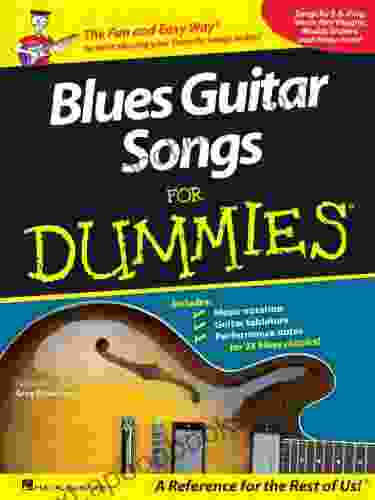
 Henry Wadsworth Longfellow
Henry Wadsworth LongfellowUnleash the Blues Spirit: Dive into "Blues Guitar Songs...
The captivating allure of the blues has...
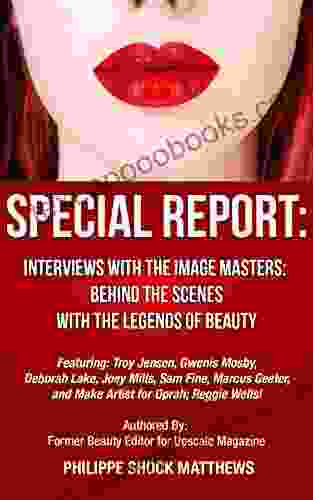
 Ernesto Sabato
Ernesto SabatoBehind the Scenes with the Legends of Beauty
Unveiling the...

 Neal Ward
Neal WardUnleash the Infernal Power of "Lucifer's Hammer" by Larry...
A Cosmic Catastrophe that Will Ignite Your...
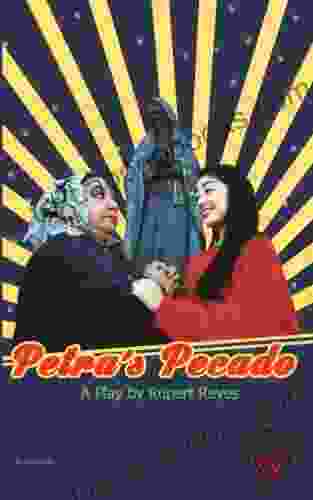
 Wesley Reed
Wesley ReedPetra Pecado: A Gripping and Unforgettable Journey...
Embark on a Captivating Adventure ...
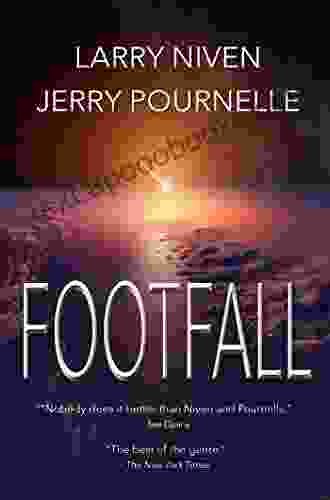
 Phil Foster
Phil FosterStep into a World of Wonders: Footfall by Larry Niven - A...
Prologue: In the vast expanse of the...
5 out of 5
| Language | : | English |
| File size | : | 2746 KB |
| Text-to-Speech | : | Enabled |
| Screen Reader | : | Supported |
| Enhanced typesetting | : | Enabled |
| Word Wise | : | Enabled |
| Print length | : | 208 pages |


